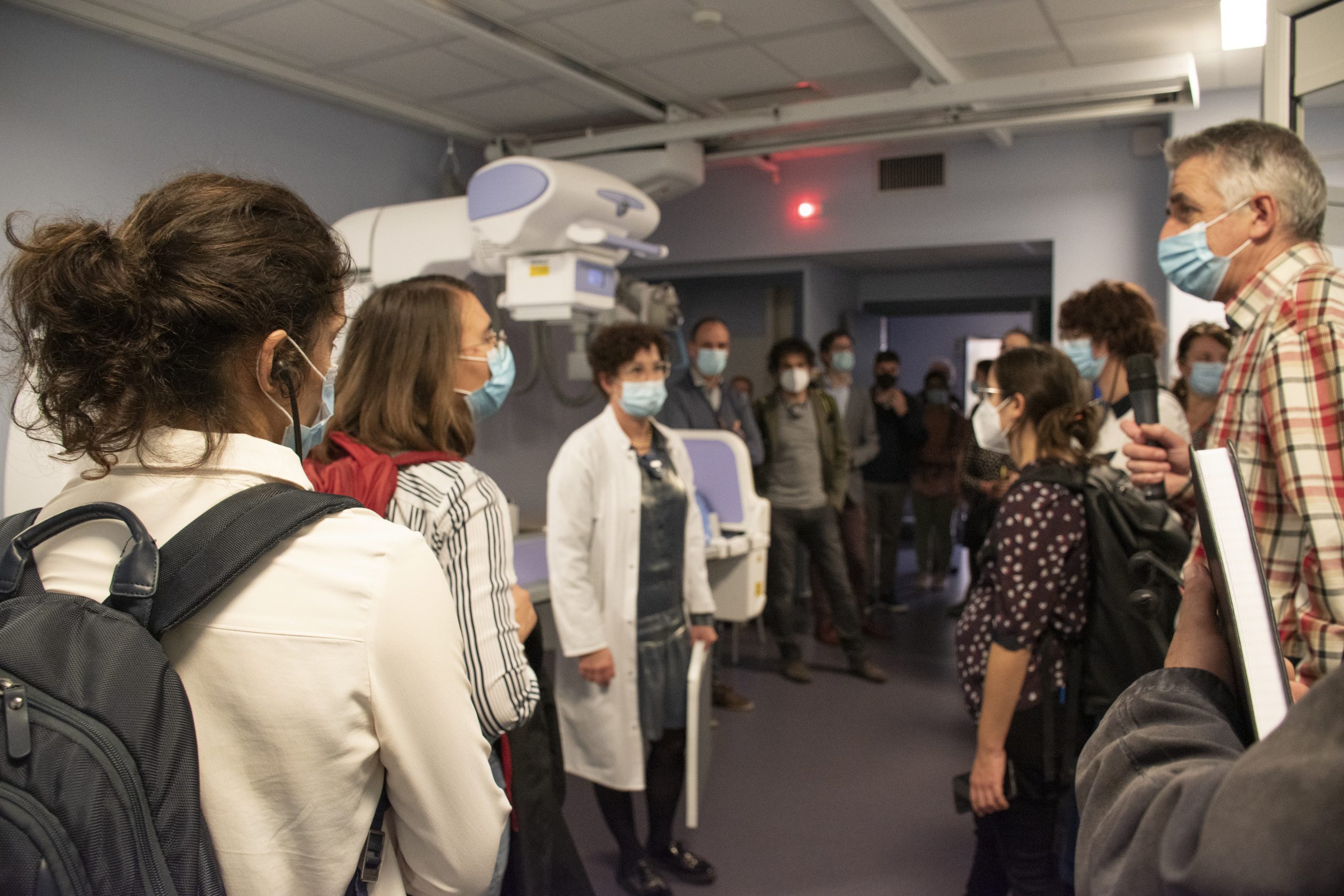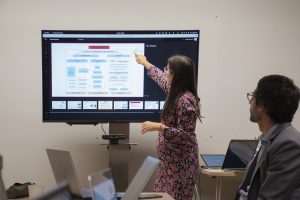
Hospitals should be the last buildings standing during extreme weather events. With that goal in mind, twelve organisations from six countries met in Millau, France, to improve the climate resilience of the European healthcare sector.
The first in-person meeting of the LIFE RESYSTAL project brought technical partners and pilot hospitals together to exchange ideas and learn more about healthcare climate resilience and experiences on the ground in France. Over four years, the LIFE RESYSTAL project will develop, demonstrate, evaluate, and disseminate a framework for climate-resilient health systems with seven pilot hospitals and two local and regional health systems.
“This meeting was crucial in helping us to close the gap between the technical solutions and what hospitals actually need. This will guide the next phase of the LIFE RESYSTAL framework development.” – Stelios Karozis, Coordinator of the project and Project Manager – the National Center for Scientific Research Demokritos.
Climate change and health
The 2022 Lancet Countdown report, coincidentally published during the LIFE RESYSTAL consortium meeting, refers to healthcare as “a debilitated first line of defence”, in light of the increasing pressures that worsening health impacts of climate change, along with other coexisting crises, are placing on health systems worldwide.
CH Millau and CH Saint-Affrique, two pilot hospitals participating in the LIFE RESYSTAL project, are no strangers to these impacts. Both heatwaves and flooding have already posed major challenges to the two hospitals and the communities they serve, and these events are becoming more frequent.

During a site visit at the two hospitals, healthcare workers outlined how extreme weather events affect every part of the hospitals’ operations as well as their patients. Extreme heat is detrimental to imaging and radiology, impedes blood work, and poses serious risks to elderly patients. A flood in 2014 at CH Saint-Affrique also highlighted vulnerabilities at the hospital and required evacuation procedures that hugely affected both patients and staff.
Both hospitals have made climate resilience a priority. Throughout the project, they’ll not only pilot the tools and methodologies to develop plans to prepare for future extreme weather events, but also implement specific blue and green infrastructure measures. Thermal insulation, Canadian wells, a vegetated facade, and waterproofing features are all examples of measures that the hospitals will implement over the next few years.
“Seeing firsthand the circumstances and means of other hospitals and how they deal with the challenges of climate change is a great exercise that gives us the opportunity to improve as an institution.” – Lara Suarez Casabiell, representing the Galician Health Service (SERGAS).
System-level action on resilience
Extreme weather events caused by climate change do not just affect individual hospitals, but whole regions and their communities. The LIFE RESYSTAL project therefore takes a community approach to climate resilience, including not just hospital management and personnel, but also first responders, engineers, urban planners, health experts, patient and healthcare user associations, and local government representatives.
The latter is crucial for European-wide healthcare climate resilience. The World Meteorological Organization has shown that temperatures in Europe have increased more than twice the global average in the last 30 years, highlighting the need for European policymakers to dedicate resources and prepare healthcare systems for the impacts of climate change.

The LIFE RESYSTAL framework for climate-resilient health systems will support policymakers to do just that. The project will also support investment decisions that consider and encourage climate change adaptation.
“The LIFE RESYSTAL project is crucial for the future of healthcare. We must adapt to climate change and we need the tools that are being developed during this project. This meeting helped us to show the partners our reality in Millau and Saint-Affrique – our experiences of the impacts of climate change.” – Sébastien Coquelin, Director of Financial Affairs – Millau and St Affrique Hospitals.
Would you like to stay updated on the project’s progress? Find out how you can get involved.